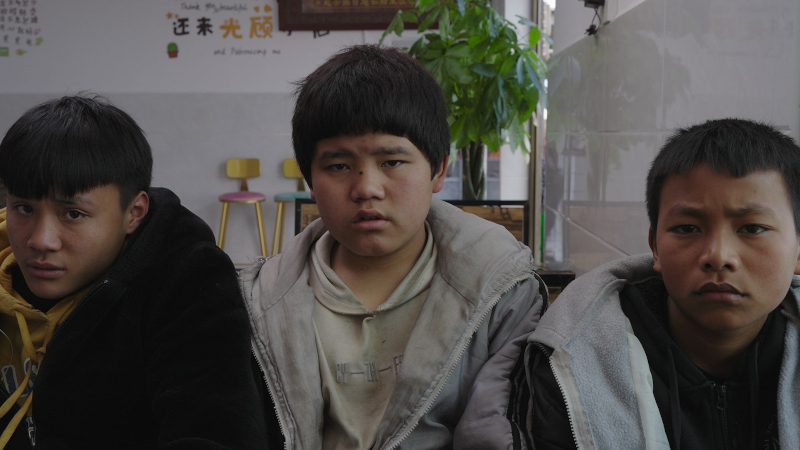Director – Hou Dasheng – 2024 – Canada – 73m
*
In a remote, Southern Chinese mountain village, a 14-year-old needs the money for the dowry to buy his 12-year-old sweetheart as a wife – premieres in the Critics’ Picks Competition of the 28th Tallinn Black Nights Film Festival
Credited on the Festival’s website as a Canadian production in the Burmese and Chinese languages, this is a Chinese-made film not sanctioned by the Chinese authorities dealing with subject matter which the filmmakers fear would not be passed by the Chinese censor. The caption review suggests that a number of the film’s cast and crew have used pseudonyms to avoid prosecution. The narrative takes place in the mountainous, Southern region of China close to the border with Myanmar, where people are known by their Burmese names, but occasionally refer to other people by their Chinese names. You get the feeling that this area of China has been largely forgotten by the distant Beijing authorities.
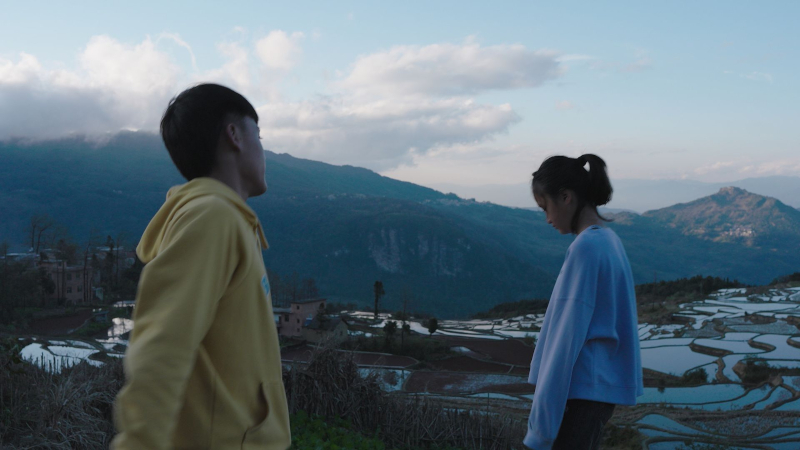
The central characters are young teenagers or pre-teenagers, Hani (14; Gao Xiaokang) and his friend Apao (Qian Long), who seems to be frequently seeking advice from others on his mobile phone, and Hani’s longtime sweetheart Pushiha (12; Pu Juan). We glimpse the interiors of both Hani and Pushiha’s homes, and the similarities are startling: no sign of parents, as each lives rather with a single grandparent – a grandma in Pushiha’s case, a grandpa (Ma Youxing) in Hani’s – who are shown as sitting in a chair sleeping in front of the constantly switched on TV all day, completely out of it. In front of Hani’s grandpa is a small, blazing log fire to keep him warm. These are poor people.
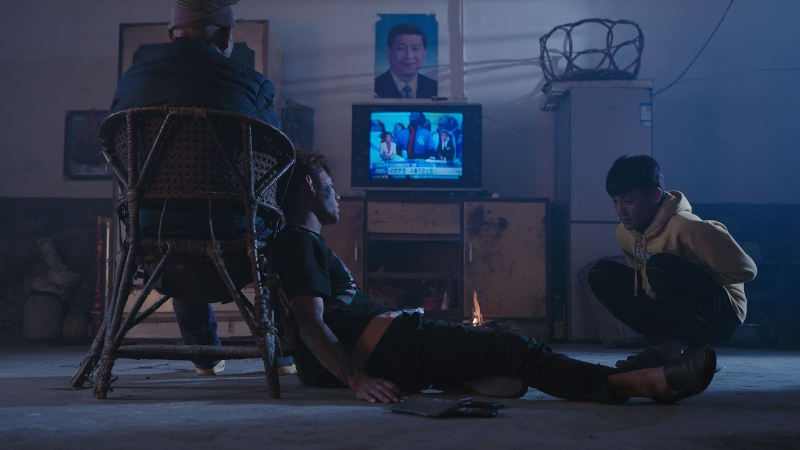
Hani’s problem is that he wants to marry Pushiha, and in order to do that, he has to pay for her dowry at the price set by her grandmother, which is ¥5,000, more money than he ever expects to see. (We never see any sign of the grandmother in any conscious, waking state where she would be capable of any such decision, but there is never any contrary suggestion that she might not be making this decision herself.) Hani has competition, too, in the form of the mayor’s son, who, we learn through Hani and Pushiha’s dialogue, has apparently expressed an interest in marrying Pushiha himself and would have no problem with getting the money.
In the absence of immediate parental role models, the kids do the best they can. Visiting teacher Prof Xi is assigned to help the kids, but he doesn’t show up, and teacher Miss Tian (Tian Tian) arrives by truck in his place. The ubiquitous local mayor (Deng Jinfu), an approachable man wearing smart trousers and a clean, open-necked, white shirt, assigns her to live with Pushiha for the duration of her stay, as he knows the young girl’s case is in need of attention. Miss Tian helps the mayor sort out some money owed by the state to Pushiha – it’s difficult to follow exactly what’s going on here, as if Ken Loach had made I, Daniel Blake (2016) but neglected to explain how the UK’s benefits system works – yet is effectively unable to offer the girl any moral guidance, something the latter sorely needs. Pushiha, meanwhile, thinks nothing of getting her sleeping grandma’s inked thumbprint onto a legal document to authorise it (the inked thumbprint is a standard method of verifying such documents round these parts).
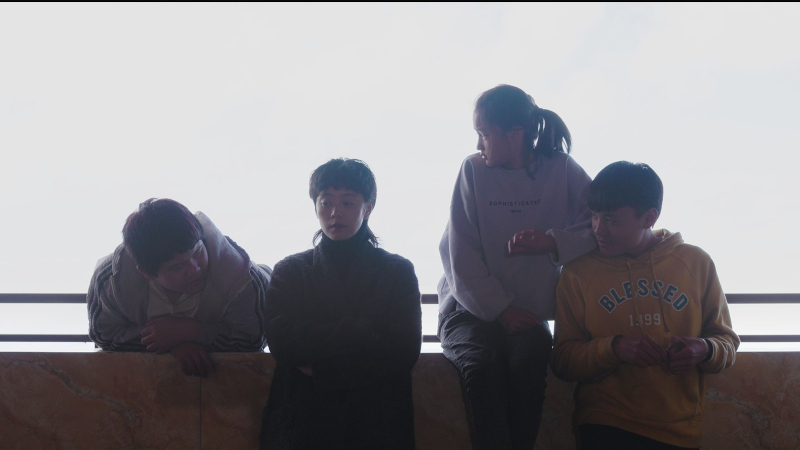
Besides, Miss Tian has her own problems. She videochats on her phone with Prof Xi, exposing her breasts to him – to the delight of a couple of local boys she’s unaware of, who are peeping at her through her window. The videocall is cut short by the arrial of Xi’s wife, who Miss Tian is coming to realise he has no intention of leaving. Miss Tian is prone to getting drunk at night and “cuddling” any man or boy who wanders into her room and lies beside her, a state of which Hani will later take advantage.
Hani himself scarcely fares better in terms of finding a reliable moral compass. He and Apao hang out at the local pool hall run by the adult Don Juan (Zhu Mingsha), who sends them packing when they have no money to pay him to play. Instead, Hani falls in with local petty thief Heche (Gao Hua) who knows how to make money through fencing goods and shipping drugs through the local criminal underworld network of certain shopkeepers and small business owners who are in on it, identified by the coded pass phrase, “Pig Brother is watching you.”
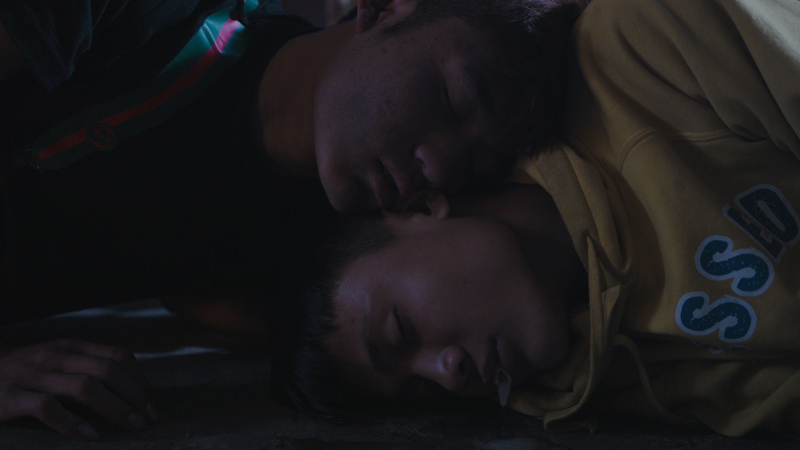
Spurred on by Heche, who loans him his scooter – a Road Racer rather than a more expensive Yamaha as Hani first identifies it – Hani steals three silver pieces from Pushiha’s grandma (without Pushiha’s knowledge) to make himself some cash to buy fancy clothes, only to later regret it and try to get the three silver pieces back. He naively approaches the two local cops at the police station (the head one played by Kong lingchun) which results in a loudspeaker being carried around the town announcing that he has been stealing. There are scenes elsewhere of boys viewing video porn, but, like similar material here, shot in such a way as to keep any explicit content off the screen.
Miss Tian’s attempts to get through to Pushiha include a remark to the effect that, it’s too late for me, but it may not be too late for you. The teacher gets gang-raped towards the end by a number of young boys – which is to say, we hear this happening offscreen in a room upstairs while we watch Pushiha sitting impassively in a downstairs corridor in the same building.
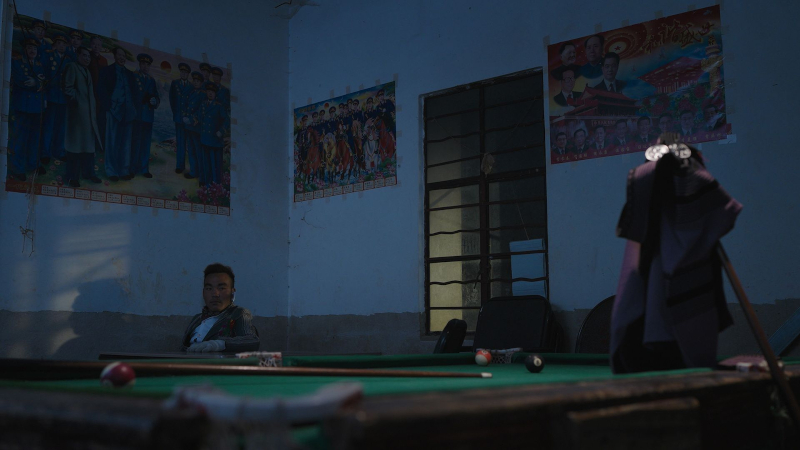
Some of the boys’ dialogue throughout the narrative is peppered with the ignorant male adolescent sex talk of teenage boys the world over, but it appears to be indulged too by adult males you would have thought had grown out of such words and phrases. (I’m not a Chinese speaker, so it’s entirely possible that sexually objectified words like “tits” in the subtitles are a poor translation.) Perhaps it’s just lazy filmmaking by people who thought a rape scene would be a good thing to put in the last reel of a film. (How could one even think this?) By way of contrast, scenes of Hani sweet-talking Pushiha suggest them to be charming young kids who genuinely like each other.
A beautiful, lengthy, reverse tracking shot is deployed early on in which Hani and Pushiha talk as they walk along a road going up a hill (a segment of his shot is included in the trailer, as well it might be because it’s the best thing in the film.). This one shot is visually satisfying, and the two young leads are a pleasure to watch. It’s not that they can act, exactly, it’s more that the camera catches them just being teenagers and talking.
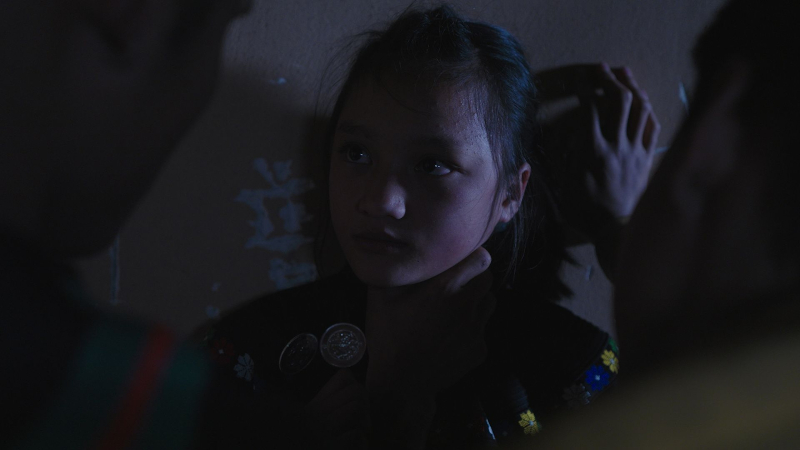
The issues of child marriage, child brides, and dowry / payment for them is clearly an important issue in need of addressing. Moreover, the film is shot in a geographical area all too rarely seen on our screens.
Alas, the narrative information required by the audience to generally make sense of what’s happening proves all too often too difficult to follow, making the act of watching the film extremely hard going. The above review took a couple of viewings of the film as this reviewer attempted to sort out exactly what was going on. Many of the above details about the film were worked out from researching geography on the web, or going back for a second viewing and re-listening closely for information buried in specific images or lines of dialogue. Much of the exposition overall in the film itself is far from clear on a single viewing, and it’s not a film you’d wish to go back and watch again., frankly, because there’s not enough substance there. Altogether, an infuriating movie experience: not recommended.
Hani premieres in the Critics’ Picks Competition of the 28th Tallinn Black Nights Film Festival which runs in cinemas from Friday, November 8th to Sunday, November 24th 2024.
A shorter version of this review originally appeared on DMovies.org: you can find it here.
Trailer:
